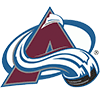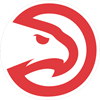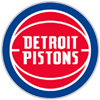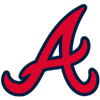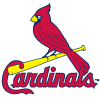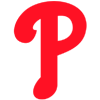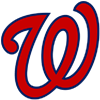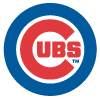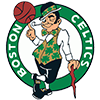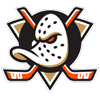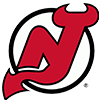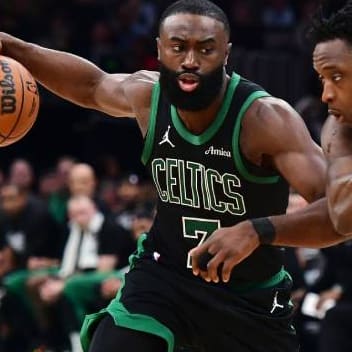STATE OF THE FRANCHISE
After a few years in the wilderness due to the Tracy McGrady/Yao Ming project's collapse, the Rockets once again have built a contender by improbably signing James Harden away from the Thunder last year and pairing him with superstar center Dwight Howard this summer. Having a two-superstar core is a virtual prerequisite for a title in the NBA, and that core is augmented by quality role players like versatile small forward Chandler Parsons who can defend and shoot from long range, Omer Asik - an elite defensive big man - and a stable of point guards including Jeremy Lin, Patrick Beverley and Aaron Brooks. The team will need consistency from one or more of them, as well as something from one of four power forwards who could see a significant role.
PLAYING TIME DISTRIBUTION
Jeremy Lin is slated for the bulk (25-30) of the point-guard minutes with Patrick Beverly spelling him for the rest. Beverly could push Lin for the job if Lin were to struggle, and Aaron Brooks is in the mix should one of them get hurt. Rookie Isaiah Canaan is slotted to spend his season in the NBA D-League, barring injuries. At shooting guard, James Harden will see 35-40 minutes per game with swingman Francisco Garcia (15-20 mpg) often backing up both him and small forward Chandler Parsons. Reggie Williams, B.J. Young, Omri Casspi and Ronnie Brewer will also vie with Garcia for back-up minutes at the
STATE OF THE FRANCHISE
After a few years in the wilderness due to the Tracy McGrady/Yao Ming project's collapse, the Rockets once again have built a contender by improbably signing James Harden away from the Thunder last year and pairing him with superstar center Dwight Howard this summer. Having a two-superstar core is a virtual prerequisite for a title in the NBA, and that core is augmented by quality role players like versatile small forward Chandler Parsons who can defend and shoot from long range, Omer Asik - an elite defensive big man - and a stable of point guards including Jeremy Lin, Patrick Beverley and Aaron Brooks. The team will need consistency from one or more of them, as well as something from one of four power forwards who could see a significant role.
PLAYING TIME DISTRIBUTION
Jeremy Lin is slated for the bulk (25-30) of the point-guard minutes with Patrick Beverly spelling him for the rest. Beverly could push Lin for the job if Lin were to struggle, and Aaron Brooks is in the mix should one of them get hurt. Rookie Isaiah Canaan is slotted to spend his season in the NBA D-League, barring injuries. At shooting guard, James Harden will see 35-40 minutes per game with swingman Francisco Garcia (15-20 mpg) often backing up both him and small forward Chandler Parsons. Reggie Williams, B.J. Young, Omri Casspi and Ronnie Brewer will also vie with Garcia for back-up minutes at the two and three. Chandler Parsons will see 35-40 minutes at small forward, providing defense and versatility. Power forward is where the minutes are most in flux, with Donatas Motiejunas, Greg Smith, Terrence Jones and rookie Robert Covington all vying for work. Training camp will determine who's part of the initial timeshare, but it is likely to change as the season goes on. Dwight Howard will see 35 mpg at center with Omer Asik playing 15 mpg as his backup, though there's a chance Asik - a valuable commodity in his own right - could be dealt. Marcus Camby and Greg Smith could see a handful of minutes in the pivot if that happens.
PLAYER OUTLOOKS
Center
Dwight Howard: Last year Howard was clearly affected by offseason back surgery and Lakers coach Mike D'Antoni's system, as he finished with still stellar but not superhero-level averages of 17.1 points and 12.4 rebounds per game. Despite the drop in his double-double stats, Howard remained a beast on the defensive end of the court, averaging 2.4 blocks and 1.1 steals. Of course, his free-throw shooting remained abysmal, as he hit only 49 percent of his freebies while attempting 9.5 per game – that level of ineptness is a huge sap to Howard's overall value in rotisserie formats. Still, there's plenty to praise with Howard's game. He remains a physical marvel and should look more like his old self now that he's more than a year removed from back surgery. And his move from the Lakers to the Rockets should put him back in a role more comparable to the one he played in Orlando – like the Howard-led Magic teams, Houston is loaded with three-point shooters to space the floor for the big man. At 27, Howard still has plenty of good years left, and it's tough to find centers that are more productive in any category, outside of free-throw shooting.
Omer Asik: Asik averaged a double-double last year with 1.1 blocks and played outstanding defense in the low post. Unfortunately for him, the team signed Dwight Howard, and while the two will play side by side on occasion, it's hard to see how two players who need to be so close to the basket would mesh together. As such, Asik will likely occupy a backup role and log no more than 15-20 minutes per game unless Howard were to get hurt or the team were to trade Asik.
Forward
Greg Smith: At 6-10, 250, Smith has the bulk to pull down double-digit boards and can finish at the rim too. If Asik were to get traded, Smith could also see minutes backing up Dwight Howard.
Terrence Jones: Jones could be the slight favorite to start, given his dominant showing in the D-League last year and his ability to shoot from outside for a big man.
Robert Covington: An undrafted rookie, Covington missed much of his senior year at Tennessee with a knee injury, but proved himself healthy with a strong summer league showing. He's a long shot to see major minutes given his lack of bulk (6-9, 215).
Donatas Motiejunas: Motiejunas is the typical Euro big man - not much of a rebounder or shot blocker, but can stretch the floor by knocking down the three. He could be a good fit alongside Howard, however, as he can play away from the basket.
Chandler Parsons: Parsons jumped from 1.0 to 2.0 three-pointers per game from his first to his second year, while also pumping up his field-goal shooting from 45 to 49 percent. His free-throw percentage skyrocketed from 55 to 73, and in turn, he averaged a career best 15.5 points per game. Parsons is the epitome of a guy who helps out everywhere and hurts you nowhere. The acquisition of Dwight Howard should only help Parsons, who should get even more open looks from downtown on inside-out plays. The current roster in Houston also means Parsons and James Harden are easily the two most reliable long-range shooters, so shots should be plentiful, and we could see a rise in three-pointers in 2013-14. Parsons will be 25 this season, so chances are we haven't seen him at his best yet, and if that's the case, he should be scooped up before the 40th pick in nine-category leagues. Finally, Parsons' excellent defense will keep him on the floor even if he's in a shooting slump.
Francisco Garcia: Garcia will vie with a host of other swingmen to backup the shooting guard and small forward positions. Garcia is a good free-throw shooter, can knock down the three and even chip in with steals and blocks when he gets the minutes.
Guard
James Harden: Freed from a sixth-man role with the Thunder, Harden emerged as one of the league's stars last year, with huge contributions across the board. Harden is an adept three-point shooter (36.8%, 179 makes), but is also dangerous from mid-range and can get to the rim. And if you foul him, he knocks down his free throws at an 85.1 percent clip. The only weakness in his game last year - and it was hardly a major liability - was his field-goal shooting (43.8%), but that's a product of taking so many three pointers and being the offensive player teams schemed to stop. With Howard now in the fold, expect Harden to see more open looks, at least as many threes, more assists and a better shooting percentage. In leagues that count turnovers, Harden caused some damage there (3.8 per game), and that's likely to remain an issue as he handles the ball quite a bit for an off guard. Even so, once Kevin Durant and LeBron James are off the board, Harden shouldn't be too far behind.
Jeremy Lin: Lin didn't really live up to the hype in his first season as a Rocket – but then, how could he? He overcame some minor injuries and started all 82 games at point guard, but he finished the year with somewhat pedestrian averages of 13.4 points, 6.1 assists and 3.0 rebounds. The biggest complaints about Lin's game are his outside shooting and his defense, and both were problems in Houston, as he converted less than 34 percent of his threes and struggled to defend quicker guards. But all hope is not lost. The arrival of Dwight Howard could really benefit Lin this season; Howard's presence in the paint should negate some of Lin's defensive problems, and on the offensive end, the pair should make a very imposing pick-and-roll combination. Will we see the heights of Lin-sanity again? Probably not. But Lin could be primed for a bounce-back season this year, and should be regarded as a post-hype sleeper.
Patrick Beverley: The backup to Jeremy Lin, Beverley played well enough down the stretch to see regular minutes in the playoffs (in part due to Lin's chest injury) and earn the trust of the Rockets coaches. Beverley's not much of a scorer, but he can knock down an open three and play perimeter defense. Expect 20 minutes per game and a regular role in the team's rotation.
Aaron Brooks: A score-first point guard with great quickness, Brooks will vie to make the team as a back-up and three-point threat off the bench.
SLEEPER
Chandler Parsons: Parsons isn't a big name, but in categorical leagues he'll help you nearly everywhere and harm you nowhere. He'll be especially useful in three-pointers and could shoot even more of them this year with teams crashing down on Howard. He's also a nice source of assists from the front court, and his free-throw shooting is no longer a major liability.
BUST
Dwight Howard: Even if Howard is his old self, it's nearly impossible to win a categorical league with him because he forces you either to tank free throws altogether, or build your entire team with free-throw aces just to finish in the middle of the pack. In head to head categorical or points leagues, however, he's still got superstar upside.









